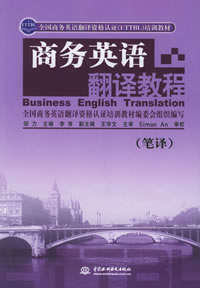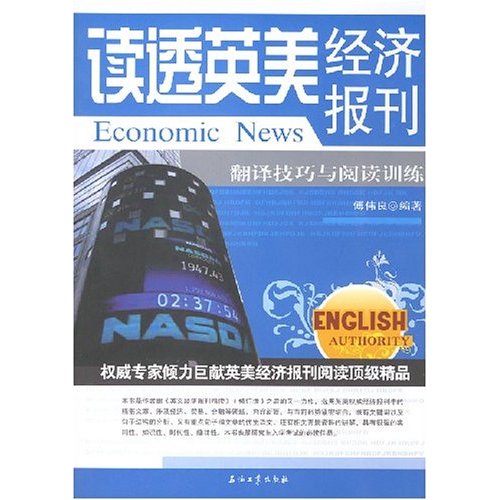直译与意译 (I)
作者:古龙 2009-07-04




语际翻译公司 转载请注明https://www.scientrans.com
∗本栏目部分文章内容来自互联网,部分已经过本站编辑和整理,如有版权事宜请联系Email/MSN jesczhao@hotmail.com
from all above, that is the reason of "translate literally, if possible."
2.2 literal translation≠word-for-word translation.
at first, which kind of translation is word-for-word translation? word-for-word translation is that: when translating, consider every words. every words of source language is translated cooridnatly.
for example:③
5) it was an old and ragged moon.
word-for-word translation: 那是一个又老又破的月亮.
6) many of his ideas are especially interesting to modern youth.
word-for-word translation: 他的许多思想对当代青年特别有趣.
from the example 5) and 6), we know word-for-word translation does not do any changes to source language. the form is close to the original, but it does not express the meaning of the source language. strictly speaking, it is not translation. nevertheless, some translation which did some change to source language and the structure of target language is also the same as source language, the translation is smooth, but the meaning and the style are far from the original, usually, target language readers did not know what it said. this is also word-for-word translation.
for example: ④
7) every atom of your flesh is as dear to me as my own: in pain and sickness it would still be dear.
word-for-word translation: 你的肉中的每一个原子,对我来说,都像我自己一样亲;即使在病痛中,仍然是亲的.
8) being a teacher is being present at the creation, when the clay begin to breathe.
word-for-word translation: 当一名教师意味着是创造的见证人,他目睹人体开始呼吸,开始了生命.
translation of 7) and 8) are smooth. but they do not accord with the expressive way of chinese. it is word-for-word translation.
from all above, word-for-word translation is so starchy, goes after the form of source language that it never think of the effect of target language. because word-for-word translation does not accord with the expressive way of target language, it is obscure, hard to understand it even makes target language readers did not know what does translator want to express. word-for-word translation makes target language readers confused. it is unqualified translation.
literal translation also keeps the general form of source language,and keeps the structure and the metaphor of the original. but literal translation does make some neccessary adjustment, make target language smooth, clean and acceptable. after reading, target language readers can have almost the same feeling as the source language readers. but word-for-word translation only translate word by word, it is stiff and unitelligible. quality of literal translation is good. word-for-word translation is inferior. literal translation and word-for-word translation can give different feeling to target language readers. all translation which is hard to accept, which have bad effect, which message is indistinct, which meaning is far from the original is word-for-word translation. this kind of translation is abortive.
some translation though that all translation keeps the form of the original is literal translation. that is erroneous. they confuse the conception of literal translation with word-for-word translation. these translators translate like this: first, they look up the meaning of every word of source language in dictionary. then, they combine the meaning of every word, never do any change. they do not know what translation is, so word-for-word translation emerge. but excellent translators know the meaning of the original. when translating, they do some neccessary adjustment, make target language clearer, smooth and acceptable. they know the dif
- 评论
- seme:文章内容文章内容文章内容文章内容文章内容文章内容文章内容文章内容文章内容 章内容文章内容文章内容文章内容文章内容
- seme:文章内容文章内容文章内容文章内容文章内容文章内容文章内容文章内容文章内容 章内容文章内容文章内容文章内容文章内容

- 英汉翻译中的直译与意译
2009-6-19 18:40:04 - 翻译是一门艺术,是一门带有刨造性、科学性的艺术。清代末期翻译家严复。在《天演论》的《译例言》中说:“译事三难、信、达、雅”如何达到“信、达、雅”大体说来有两种方法,...
- 英汉翻译中的陷阱
2009-6-19 10:32:38 - 英语中有些表达方法仿佛很容易理解,但翻译起来特别容易出错.我们一定要小心这些陷阱.例如下例: ...
- 第四届IEEE生物信息与生…
2009-6-30 19:42:01 - 基本信息 主办单位: 四川大学,IEEE生物医学工程协会(EMBS) 承办单位 开始日期 2010/06/18 结束日期 截稿日期 2009/1...
- 第九届全国光电技术学术…
2009-6-30 19:35:58 - 基本信息主办单位: 中国宇航学会光电技术专业委员会承办单位 开始日期 2009/11/01结束日期 截稿日期 2009...
















